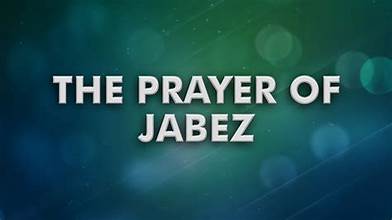Background Passage: 2 Corinthians 5:14-21; Matthew 29: 19-20; Matthew 5:9
One can imagine the sense of trepidation felt by John Adams as he stood outside the chambers of England’s King George III in 1785 shortly after being appointed by President George Washington as the first United States Ambassador to Great Britain. Washington desired to restore the damaged relationship between the two countries and establish commercial ties by persuading Britain to open its ports to American goods.
In his writings prior to the Declaration of Independence, Adams said that George III had “plundered our seas, ravaged our coasts, burnt our towns and destroyed the lives of our people.”
Because of his past words and his personal involvement in the fight for independence, Adams was uncertain as to how he would be received by the king, Adams wrote to Secretary of State John Jay, “It is not to be expected that I should be cherished or beloved.”
Despite his misgivings, Adams accepted the appointment and traveled to England.
As he presented his credentials to the king, Adam’s offered a prepared introduction, expressing the hope that he could be an instrument in “restoring an entire esteem, confidence and affection—or, in better words, the old good nature and the old good humor between people, who, though separated by an ocean, and under different governments, have the same language, a similar religion and a kindred blood.”
The ensuing conversation leads to the first steps toward reconciliation between the United States and Great Britain. As the direct representative of the one who sent him, reconciliation of differences is often the first order of business of any ambassador from one country to another.
In our focal passage in 2 Corinthians, Paul said that as Christians “we are Christ’s ambassadors.” As a result of his experience on the road to Damascus, Paul felt commissioned by Christ to reconcile the differences between Christ and the world, especially the Gentile world, as his direct representative.
At the beginning of every ambassador’s tenure of service in a new country, the ambassador must meet with the country’s leader and present his or her credentials, his authority to speak on the leader’s behalf, just as Adams did with King George III.
Every Christian, according to Paul, carries the title of Christ’s ambassador. What are our credentials? What is our authority to speak on behalf of Christ?
Take a look at our scripture passage.
For Christ’s love compels us for we are convinced that one died for all, and therefore, all died. And he died for all, that those who live shall no longer live for themselves for him who died for them and was raised again.
So from now on we regard no one from a worldly point of view. Though we once regarded Christ in this way, we do so no longer. Therefore, if anyone is in Christ, a new creation has come. The old is gone, the new is here.
All this is from God who has reconciled us to himself through Christ and gave us the ministry to reconciliation: that God was reconciling the world to himself in Christ, not counting people’s sins against them. And he has committed to us the message of reconciliation. We are therefore Christ’s ambassadors, as though God was making his appeal through us. We implore you on Christ’s behalf: Be reconciled to God. For God made him who had no sin to be sin for us so that in him we might become the righteousness of God. (2 Corinthians 5:14-21)
It is, Paul says, the love of Christ that compels us or urges us to persuade others that Christ died for the sins of the world. He died for all. That his sacrificial death leads us to live for him rather than ourselves…to offer others the opportunity to also live for Christ “who died for them and was raised again.”
We are able to do that, according to Paul, because we no longer see others through our eyes. As we live in Christ, we are transformed into something new, one with eyes that view the world through the eyes of Christ.
Paul’s Damascus experience shaped him into a new creation. His physical blindness an apt metaphor for his spiritual blindness. He could no longer see Jesus as he did before. Now, when he opened his eyes, he saw the price Christ paid for Paul’s life and gave him a new life reconciled with God through his relationship with Jesus Christ.
To find our credentials as an ambassador of Christ, we need look no further than his great love that led him to the cross and the change he has made in our lives as the old gives way to this new creation within us. This is our authority from God to speak words of reconciliation to a lost world.
It does us little good if we never extend those credentials to those to whom God has sent us. If Adams had stayed in France rather than taking a boat to England when commissioned as an ambassador, his ability to restore the relationship between the United States and Britain would have been compromised. So it is with our call to be Christ’s ambassador. If we fail to take our commission into the world, we limit our effectiveness as Christ’s representative.
If that makes sense, then what is our mission? Jesus gave us our marching orders in Matthew 28:19-20.
Therefore go and make disciples of all nations, baptizing them in the name of the Father and of the Son and of the Holy Spirit, and teaching them to obey everything I have commanded you. And surely, I am with you always, to the very end of the age.”
Jesus called us to make disciples and teach them a life of obedience to the commands of Christ. Paul took the Great Commission and further defined it as the ministry of reconciliation.
Washington sent Adams to restore the relationship between the U.S. and Britain. To re-establish the trade and commerce between the nations. That was his message of reconciliation.
Christ sends us into the world, according to Paul, with a message of unparalleled importance. That God reconciled the world through Christ’s death for the purpose of not holding the world’s sins against them. Christ took my sin and yours upon himself. Offered his life as atonement or payment for our sin. That, Paul says, is the message of reconciliation. That’s the word we are to share as his ambassadors.
I love the conviction and emotion that I can hear in what Paul wrote. Look at verse 20-21 and hear the sense of urgency and longing in Paul’s voice.
We are therefore Christ’s ambassadors, as though God were making his appeal through us. We implore you on Christ’s behalf: Be reconciled with God…become the righteousness of God.
Think with me about this idea of reconciliation. It is not a complicated message. It is grounded in the very real death and resurrection of Christ. It is about Jesus. We can share our testimony. We can talk about sin and forgiveness and throw in a smattering of heaven and hell. Until we talk about Jesus and what he did for you and me, we’re missing the core of the gospel story.
In this passage, Paul talked about how his opinion of Jesus changed. Paul once opposed Christ, seeking to imprison or kill his followers. When Paul encountered the risen Christ, all that changed. When he understood the purpose and meaning of the death and resurrection of Jesus, it changed the way he saw Jesus and it changed the way he saw everything and everyone else. The message of reconciliation is about Jesus and his love for us…his desire for us to be made new and made right with God.
It’s the difference in a caterpillar and a butterfly. The metamorphosis within the chrysalis turns the thing that was once grounded into a new creature that can now fly. God took the initiative through Christ to give us that path back to him. To provide a way to restore the broken relationship. To take what was wrong in our relationship to God and make it whole and right again. To make the old us into a new us.
That’s why Paul’s words sound so desperate when he urges us to be reconciled with God. He knows what is at stake for the lost soul.
That takes care of the relationship between us and God, but the ministry of reconciliation has one more facet to consider. I thought about this last week as I taught a lesson on the Beatitudes.
The Beatitudes unveil the character demanded of those who desire to be a part of the kingdom of God. It speaks of the poor in spirit, the meek, those who hunger and thirst for righteousness. And, it speaks of the peacemakers.
Blessed are the peacemakers for they shall be called the sons of God. (Matthew 5:9)
The kingdom of God is a kingdom of peace and yet we are too often at war with one another. Unreconciled with each other. The broken relationships, the societal divisions, the political acrimony, the racial bigotry drive a wedge between God’s people and the rest of the world, It can also drive a wedge between God’s people when we aren’t right with him.
Blessedness or Contentment comes to those who find ways of bringing people together in the love of Christ, reconciling others to God and to one another. These are the peacemakers. The reconcilers. This statement promises the peacemakers will be called “Sons of God.”
I hope that makes sense to you because I like that connection. We are called into this ministry of reconciliation as his ambassadors, his peacemakers, to bring people into right relationship with God through the death and resurrection of Jesus Christ. We can’t do that That ministry is made more difficult if we’re not right with one another. Blessed are those who are peacemakers and work to bring people together as one in the body of Christ.
Washington entrusted Adams with a mission of great importance to the future of our country. God entrusts an even greater mission to his ambassadors.
This is a world that needs to be reconciled to God through Christ. A world that needs to hear our message of reconciliation: That Jesus died on the cross and was raised to new life for the sins of every man, woman and child. They must hear about Jesus. That all one has to do to be reconciled to God is to seek his forgiveness, turn away from the sin in his life and accept Jesus as Lord and savior.
For those who have not placed faith and trust in Christ, hear the urgency in Paul’s voice: Be reconciled to God.
For those of us who have made that personal decision, maybe it’s time we accept his commission as an ambassador to the world by embracing this ministry and message of reconciliation.
It’s my prayer that we might become ambassadors of reconciliation.









